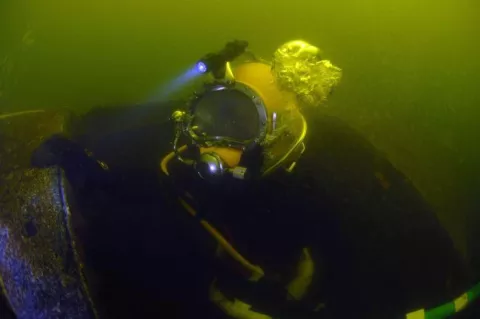Poseidon Diving Systems recalls Poseidon M28A dive computers
Poseidon M28A dive computers are subject to this recall. They continuously calculate and provide the data that divers require. The Poseidon SE7EN Rebreather with the M28A can be used separately or together. This recall only applies to dive computers with serial numbers that begin with "M28A-". On the rear of the recalled dive computers are the serial number and two metallic wet-switches.





